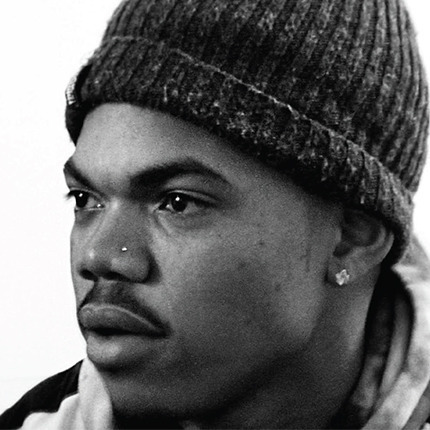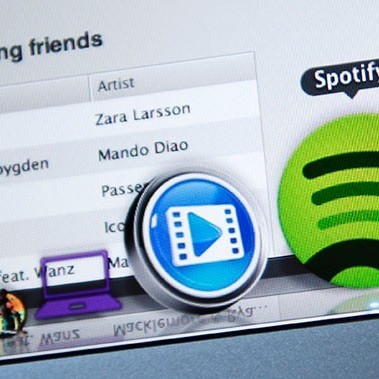The Official Funky Management Blog Based in the Washington, DC Metropolitan area, we are an artist management and representation company dedicated to discovering, developing and delivering exceptional talent to the world.
407 posts
Nearly A Decade After The Mixtape Wars Of The Mid-2000s, The Format Still Resides In An Awkward Limbo
Nearly a decade after the mixtape wars of the mid-2000s, the format still resides in an awkward limbo for retailers, distributors, artists and labels. Many retailers stopped carrying mixtapes after the RIAA proved litigious against the sale of unofficial releases, leading police raids on several retailers in 2005 and on the offices of DJ Drama in 2007. But mixtapes remain a critical promotional tool in the industry, particularly among hip-hop artists, where they often rival official albums. Outside the purview of the major-label system, sales of the format have persisted.
Last month, a mixtape album by unsigned artist Chance the Rapper available as a free download landed at No. 63 on Billboard's Top R&B/Hip-Hop Albums chart, having sold 1,000 copies in the week ending July 7, according to Nielsen SoundScan. The collection of original music, "Acid Rap," was sold through iTunes and Amazon, despite having been offered for free on the artist's website since April 30. After representatives of the artist claimed that the sales were being made without their knowledge or compensation, digital versions of the tape were quickly pulled from both retailers. But on Amazon, an apparently unauthorized physical version of "Acid Rap," credited to a company called "Mtc," continues to be sold at press time for $14.83.
"I've never heard of Mtc, so this has taken us by surprise," Chance's manager Patrick Corcoran says. "But when I first saw it I showed Chance, and his lawyers are trying to stop it."
Continue Reading
More Posts from Funkymgmt-blog-blog
For the first time since the iTunes store opened its doors, the U.S. music industry finished the year with a decrease in digital music sales.
While the digital track sales decline had been expected due to weaker sales in the first three quarters, the digital album downturn comes as more of a surprise as the album bundle had started out the year with a strong first quarter.
Overall for the full year 2013, digital track sales fell 5.7% from 1.34 billion units to 1.26 billion units while digital album sales fell 0.1% to 117.6 million units from the previous year’s total of 117.7 million, according to Nielsen SoundScan.
While industry executives initially refused to attribute the early signs this year of digital sales weakness to the consumer's growing appetite for streaming, in the second half of the year many were conceding that ad-supported and paid subscription services were indeed cannibalizing digital sales.
While SoundScan has not yet released its annual streaming numbers numbers, so far industry executives have been reporting that the growth in streaming revenue has been offsetting the decline in digital sales revenue.
Overall, album sales suffered an 8.4% decline, dipping to 289.4 million units from nearly 316 million units in 2012. The CD declined 14.5% to 165.4 million units, down from 193.4 million in the prior year, while vinyl continued its ascension rising to 6 million units from the 4.55 million the format tallied in 2012. That means vinyl is now 2% of album sales in the U.S; digital albums comprise 40.6% and the CD is 57.2% and cassettes and DVDs 0.2%
Continue Reading
Band managers don’t exactly have it easy. They’ll typically book the shows, do the accounts, negotiate deals, promote the band, manage the merch, and provide a legal foundation for the band. In short, they’re a jack of all trades, and in this post we’re going to look through a few tools that can make a few of the tedious management tasks a bit easier.
#1 A tablet / good smartphone
With so much travelling around and going between meetings, a tablet is a handy investment for any manager. Not only does it mean you don’t have to lug around a hefty laptop, but it makes your journey time a little bit more productive, as you can quickly edit contracts on the bus, or post social network updates on behalf of the band.
I’d also advise that if you’re going to do anything copy-heavy e.g. writing blog posts, editing contracts, updating the band website, that you get yourself a tablet keyboard case, as they’re great for speeding things up.
#2 A good lawyer & a set of contracts for every situation
As a manager, you’re likely going to have to negotiate a number of deals for the artist you’re working with. Many larger organisations in the music industry have exceptional in-house legal teams who can make your life very difficult if you don’t know what you’re doing. Find yourself a brilliant lawyer, and get a set of music contract templates so that you know what a standard agreement should look like, and why the deal you’re negotiating differs.
#3 Use SaaS (software as a system) tools to save you time
Nowadays, there are so many SaaS platforms to save you time in every aspect of your career. Whether you use accounting software like Freshbooks, CRM software, or even music-specific platforms like Dizzyjam to print and manage your merch, SaaS can be a great way of cutting down the time you spend on tedious jobs, so you can free it up for the important stuff.
#4 Contacts, contacts, contacts
When it comes to management, who you know is important. Invest your time networking at music industry conferences to develop your network of contacts – you never know when you might need them.
#5 A Blog
In my experience, blogging is invaluable – yet it’s impossible to predict why in foresight. I no of no blogger who hasn’t seen the value in blogging, and yet few of the bloggers I know could have predicted why it’d become invaluable to them. Because of this blog, I’ve had my content featured in the Singapore music education syllabus, I’ve met countless friends around the globe, who have also become important contacts. Blogging is an excellent way of reaching more of the people you want to meet – whether that’s for you as a manager, or for the band that you manage.
In June, David Lowery, singer-guitarist of Cracker and Camper Van Beethoven, posted part of a royalty statement to his blog The Trichordist. Cracker's song "Low," he revealed, had been played 1,159,000 times on Pandora in three months; Lowery, in his capacity as the song’s co-composer, was paid $16.89. For 116,280 plays on Spotify, Lowery got $12.05. Meanwhile, "Low" racked up only 18,797 plays on AM and FM radio stations during the same quarter. But for far fewer spins, Lowery received far more money: $1,373.78, to be exact.
Just last month, Thom Yorke of Radiohead and producer Nigel Godrich pulled their Atoms for Peace project off of Spotify, citing similar inequities in how music-streaming services pay artists. "Make no mistake new artists you discover on #Spotify will [not] get paid,” Yorke declared on Twitter. “[M]eanwhile shareholders will shortly [be] rolling in it. Simples."
Maybe. Or maybe it's not quite as simples as that. The image of wide-eyed young musicians having their lunches eaten by rapacious corporations is pretty compelling, and the ongoing collapse of the record business makes it look even scarier. The week ending July 28 had the lowest total album sales documented since Billboard started using Soundscan to track sales in 1991.
But it's also worth considering who's paying whom when music gets streamed, and how that might change. Whenever you read a shockingly low number and worry about the fate of your favorite band, it's worth keeping three things in mind.
1) "The music business" is not the same thing as "the recorded music business"—especially for musicians. A recent survey by the Future of Music Coalition found that, on average, 6 percent of musicians' income comes from sound recordings. That's not an insignificant amount, but it's also a lot less than what nonmusicians might guess. (And, although there isn't reliable data from the pre-Napster era, anecdotal evidence suggests that the percentage has never been much higher.) Recordings are how listeners generally spend the most time experiencing music, but not how we spend the most money experiencing music. In practice, recordings mostly serve as promotion for the other ways musicians make money: performing, most of all, but also salaries for playing in orchestras and other groups, session work, and so on.
Continue Reading
Rock The Bells is the biggest hip-hop music festival on the planet! It will already feature a who's who in hip-hop including the Wu-Tang Clan, Black Hippy, J. Cole, Big Sean, Common, A$AP Mob and, of course, DMV's own Wale and Logic but who's next?
93.9 WKYS wants to give a chance for the DMV's next rap phenomenon to perform at Rock The Bells and take their career to the next level.
Click HERE for submission info.



